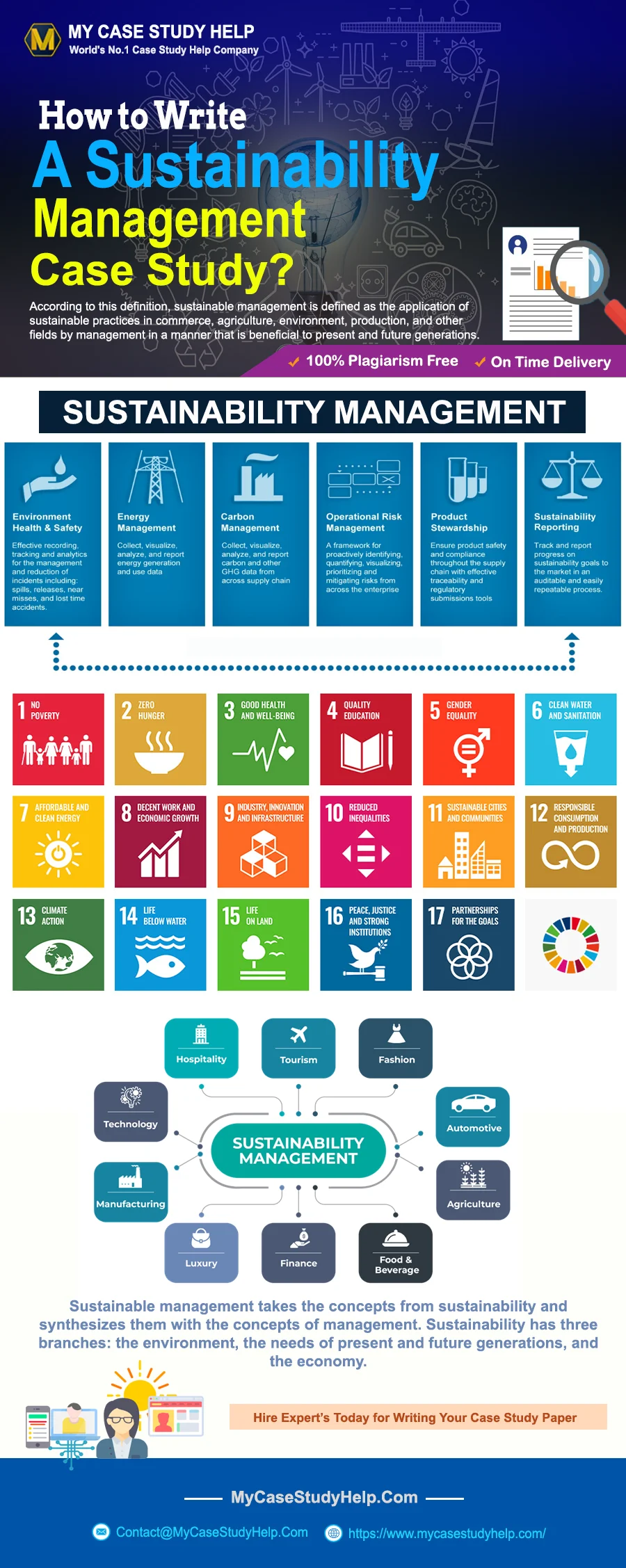University life is very interesting as well as hectic for students. They have to work on various university tasks, and sometimes they feel difficulties writing their assignment. It is crucial for students to understand the mechanism of sustainability management assignments. Usually, students want to know How To Write A Sustainability Management Case Study perfectly. The term ‘Sustainability’ can be understood from a different perspectives. Some define sustainability as the ability to meet the requirement of present customers while taking into account the requirements of future generations. Others define sustainability as achieving success today without compromising the needs of the future. While as per the business standpoint sustainability can be defined as the ability of a company to achieve its business objectives and maximize long-term shareholder value by integrating the economy.
To help students in their sustainability management assignment preparation, we at MyCaseStudyHelp.Com are always there with the finest solution. The dedicated panel of reliable professional experts at My Case Study Help has been working for more than a decade now and has helped numerous students in bettering their academic grades with the best assignment solution.
Overview of Sustainability Management Case Study
Sustainability management in the business has become a crucial thing for the achievement of the long-term target of the organizations. Sustainability management aims to map out the financial, social, and environmental performance of the organizations over a period of time. Environmental sustainability occurs when all operations, machinery, and system reduce environmental damage from an organization. A sustainable economic strategy promotes an effective allocation of resources in the organizations in a responsible manner that ensures long-term profitability. Nowadays sustainable management and development focus on catering to the needs of people today without compromising the capability of future generations to cater to their own needs.
Students are given to write a sustainability management Case Study with a motive to make them efficient in comprehending all the vital concepts that contribute to increasing sustainability development, as a result enhancing the business benefits for the particular organization.
What is required for better planning for sustainability management?
Better and effective planning is required for the sustainable management and development of the business organization. For a sustainable business the things required are mentioned below:
- SWOT (Strength, weaknesses, opportunities, and threats) analysis of the corporation is required
- Identification of the critical success factors of the business is necessary
- Management and development of long-term goals of the organization
- After that developing the strategic objectives of the vision
- Now, developing the strategy to attain the objectives of the business
- Establishing a system for the evaluation of the performance of the business activities
- Reviewing the performance and then make improvement
Sustainability practices and management
As the competition in the business is increasing with each passing day and the complexity of the business is also getting typical, the organizations are required to make sure the sustainability of their business for the long term purpose. If the sustainable practices and management are implemented successfully it assists the organization in the maturity phase of its business cycle. Some of the practices or management for sustainable business development is given below:
- Finance management involves access to the financial data, budgeting, record keeping, targets, and measurement of the outcomes.
- Strategic planning includes clear objectives, in-depth planning, and performance monitoring.
- Management of human resources including employees training, relationship, performance, development, and reward management.
- Marketing knowledge such as market intelligence and experience in the industry.
- Management of external affairs and networking including government support industry association.
- Management of leadership that includes hierarchy, governance structure, etc.
- Focus on the customers and products or services quality keeping the organization’s standard in mind.

